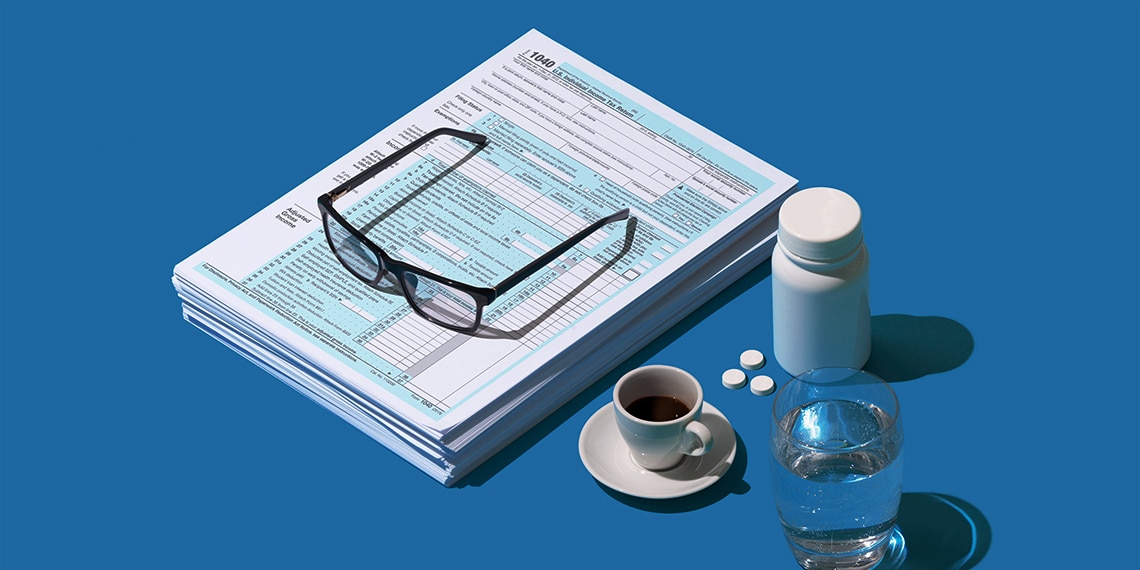
They call retirement the Golden Years for a reason. You have the freedom to travel, enjoy fine dining, pursue your hobbies—whenever you want. But problems can pop up if you haven't planned thoroughly.
Follow these tips to fine-tune your finances:
❏ Stick to a budget. Cardio is important as you age, but budgeting may be the smartest exercise of all. And it's essential if you’re living on a fixed income. Know how much money you will need in retirement and where the money is coming from, and try to anticipate how long you might live.
❏ Look at future costs. When you're in your 50s and planning for retirement, keep in mind that your expenses in your 60s will be different than in your 70s and 80s. You'll travel more at first, but eventually, that will slow down and paying for health care will become more important. Live your life, but know that living it too well may compromise your options later on.
❏ Study Social Security. It's the bedrock of your retirement income, but it won't stretch very far in many areas of the country. The maximum payout this year is $3,770 a month (with raises for inflation later on)—if you’ve contributed the maximum amount for 35 years (not necessarily consecutively), and wait until age 70 to activate the benefit. You have many options on when to start collecting Social Security, but one thing is true: the later you begin, the higher your monthly payment. That doesn't mean that strategy is right for everybody, however.
❏ Prepare for RMDs. You are required to withdraw a certain amount from your tax-advantaged savings accounts in April of the year after the year in which you turn 70½. These are known as required minimum distributions, and you can face penalties if you don’t make them.
❏ Combine your accounts. It's a good idea to merge all of your tax-advantaged savings accounts into a single IRA so that you have a clear, one-stop picture of your financial health.
❏ Think fixed-income. Within those accounts, consider putting more money in fixed income instruments such as bonds, CDs and money market funds, and less in the stock market, as you age. This diversification reduces the risk to your money if the stock market skids.
❏ Downsize your house. Either by size or location, or both. Your mortgage or rent will go down, and so will your heating bills and general upkeep.
❏ Automate your expenses. Use automatic payments for your bills. This will help make sure you don't miss important bills, such as the ones on your insurance policies.
❏ Factor in healthcare. If a family member isn't taking care of you, your long-term healthcare will cost money, and possibly quite a lot. How much money depends on where you live and how much assistance you need. It's important to try to predict the costs ahead of time, and either save for them directly over time or purchase an insurance policy to cover the costs. Medicare is not a viable solution for long-term care.
❏ Check your policies. One way to prepare for long-term care costs is to buy a life insurance policy that includes long-term-care provisions. For example, upon your death, a $300,000 policy would pay your beneficiary that amount minus whatever portion of the $300,000 you needed to pay for your long-term care. Policy premiums can be locked in, but escalate, sometimes dramatically, with the age upon purchase. Many observers say your late 50s to early 60s is the sweet spot for buying such a policy.
❏ Study Medicare. When you’re in the planning stage, well before you turn 65, understand the benefits—and limitations—of Medicare. Know what the plan covers, and what it doesn't. And plan accordingly by purchasing supplemental insurance, including Medicare Part D for prescription drugs, Medigap or Medicare Advantage.
❏ Plan your legacy. Update your will in your 50s and 60s, and start to think to whom you would give financial and legal power of attorney. That gives someone the responsibility to make decisions for you in the event that you can't.
❏ Plan for the unforeseen. Create a “living will,” which transmits your wishes to a physician should you otherwise be unable to do so. It often goes hand-in-hand with a healthcare proxy, which designates a person to make healthcare decisions for you if you can't. Together, these are called an advanced medical directive.
❏ Share your plan. You should also make sure your loved ones know where to find the documents in case you are incapacitated.
If everything goes well and your finances are in order as you age, you can begin contemplating what happens with your money after you pass. You may want to consult with a trusted advisor on a variety of estate tax strategies, including trusts and gifting. And remember that government rules surrounding retirement finance are always subject to change.
But if you take these steps, you’re more likely to have a retirement that truly lives up to your dreams of truly golden years.
Andy Sobel is a freelance writer and editor. He has held senior editing positions in The Wall Street Journal's New York and Brussels newsrooms and was managing editor of American Banker.
Explore your retirement savings options with a Riverstones Vista Capital IRA CD.

